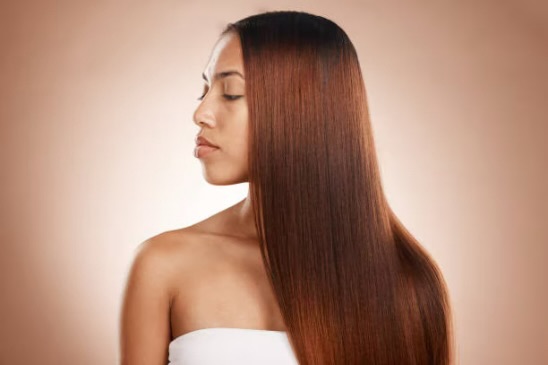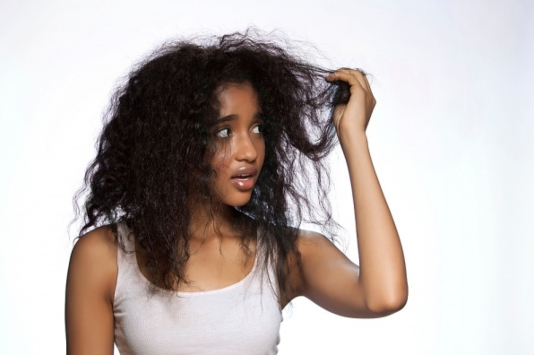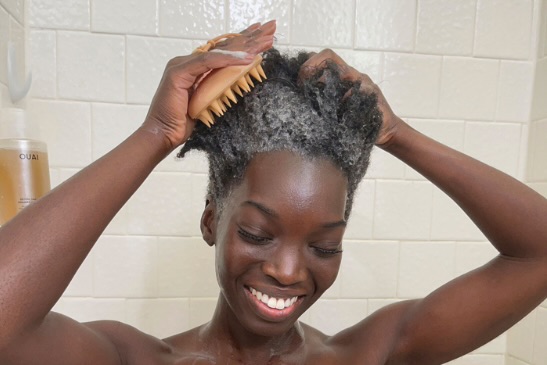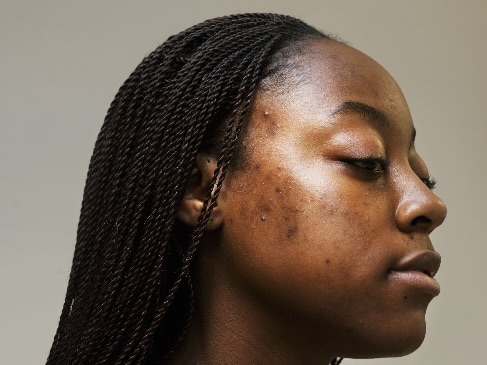For Black women with natural hair, achieving smoothness and manageability while maintaining the health of curls and coils can be a constant balancing act.
Many have turned to keratin treatments as a way to reduce frizz, increase shine, and simplify styling. But is keratin treatment right for your natural hair?
Here’s a guide to help you understand the pros and cons and how it might affect your curls.
What is a Keratin treatment?
Keratin is a protein that naturally occurs in hair, skin, and nails. A keratin treatment involves applying a keratin-based solution to the hair and sealing it with heat, typically from a flat iron. This process smooths the hair cuticle, reducing frizz and making hair appear shinier and more manageable. Keratin treatments are often marketed as a way to strengthen hair, improve its texture, and reduce the need for daily heat styling.
The benefits of Keratin treatments for natural hair
1. Frizz reduction: One of the most significant advantages of keratin treatments for natural hair is frizz control. For Black women, who often face challenges with frizz, especially in humid climates, keratin treatments can make hair smoother and more manageable.
2. Manageability: Natural hair, especially tightly coiled or kinky hair, can sometimes be challenging to style. Keratin treatments can make combing and styling easier by loosening the hair texture slightly without fully straightening it.
3. Shine and smoothness: Keratin treatments can give natural hair a noticeable shine and a sleeker look. This can be appealing if you’re seeking to enhance the appearance of your curls or want your twist-outs and braid-outs to look more polished.
4. Temporary results: For those who don’t want to permanently alter their natural texture with chemical relaxers, keratin treatments offer a temporary solution. The effects typically last between three to six months, allowing for flexibility.
The potential drawbacks
1. Heat damage risk: The heat required to seal the keratin into the hair can cause heat damage, especially to natural hair, which is more fragile. Over time, repeated treatments could lead to a loosening of curl patterns or straightened sections that do not revert fully to their original texture.
2. Chemical sensitivity: Many keratin treatments contain formaldehyde or other chemicals that can cause irritation or allergic reactions. It’s crucial to choose a treatment that is free of harmful chemicals and to consult a stylist who understands how to work with natural hair.
3. Cost and maintenance: Keratin treatments can be expensive and require professional application. Aftercare is also essential; using sulfate-free shampoos and avoiding excessive heat is necessary to maintain the treatment’s effects.
Is Keratin right for you?
Ultimately, whether a keratin treatment is right for your natural hair depends on your goals. If you’re looking for a way to control frizz, enhance shine, or make your hair more manageable without permanently straightening it, a keratin treatment might be a good option. However, if you’re concerned about maintaining your curl pattern or avoiding heat damage, it’s essential to weigh the pros and cons carefully.
Consulting with a knowledgeable stylist who specializes in natural hair is key to making an informed decision. This ensures that your hair’s health and integrity are preserved, while still achieving the look and feel you desire.





